Related Research Articles
Skyhooks were an Australian rock band formed in Melbourne in 1973. Their classic lineup (1974–1977) comprised Graeme "Shirley" Strachan (vocals), Greg Macainsh, Red Symons, Bob "Bongo" Starkie, and Imants "Freddie" Strauks (drums).
Pussyfoot was a British recording act of the late 1970s. The act consisted of songwriter, producer and musician Mick Flinn, and vocalist Donna Jones. Flinn remained behind the scenes, and Jones was marketed as a solo artist.

"SOS" is a song by Swedish pop group ABBA. It was released in June 1975 as the fifth single from their self-titled 1975 album.

"Every Little Bit Hurts" was originally a 1964 hit single for Motown soul singer Brenda Holloway, written by Ed Cobb and featured on Holloway's album of the same name.

"Women in Uniform" is a 1978 song by the Australian band Skyhooks; it was written by the band's bass guitar player, Greg Macainsh. It was released in February 1978 as the lead single from their fourth studio album, Guilty Until Proven Insane and peaked at number 8 in Australia and number 73 in the UK.
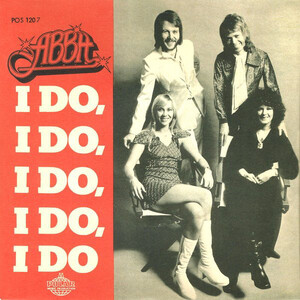
"I Do, I Do, I Do, I Do, I Do" is a song by Swedish pop group ABBA. It was the third single to be released from their third studio album, ABBA (1975). The song was written by Benny Andersson, Björn Ulvaeus and their manager Stig Anderson, and was released in April 1975 with "Rock Me" as the B-side.

"That's the Way (I Like It)" is a song by American disco and funk band KC and the Sunshine Band from their self-titled second studio album (1975). The single became the band's second No. 1 hit in the Billboard Hot 100, and it is one of the few chart-toppers in history to hit No. 1 on more than one occasion during a one-month period, as it did between November and December 1975. It topped the US pop chart for one week, and then was replaced by another disco song, "Fly, Robin, Fly" by Silver Convention. "That's the Way (I Like It)" returned to No. 1 for one more week after "Fly, Robin, Fly" completed three weeks at the top. "That's the Way (I Like It)" also spent one week at No. 1 in the soul singles chart. The song is in natural minor.
"Jump in My Car" is a song originally recorded by Australian rock band Ted Mulry Gang in 1975. The song was written by Australian singer Ted Mulry and guitarist Les Hall, and was the first hit for the band in Australia. "Jump in My Car" was number one in Australia in 1976 for six weeks.

"Rock Your Baby" is the debut single by American singer George McCrae. Written and produced by Harry Wayne Casey and Richard Finch of KC and the Sunshine Band, "Rock Your Baby" became an early landmark recording of disco. It was the only international hit for McCrae. The song spent two weeks at number one on the Billboard Hot 100 in July 1974, and three weeks at number one on the UK Singles Chart that same month. The song also topped the Billboard R&B chart. The single has sold over 11 million copies, making it one of fewer than forty singles to have sold 10 million physical copies worldwide.

"Fly, Robin, Fly" is a song by the German disco group Silver Convention from their debut studio album Save Me (1975). Sylvester Levay and Stephan Prager wrote the song, and the latter produced it. "Fly, Robin, Fly" was released as the third single from Save Me in September 1975, reaching number one on the United States Billboard Hot 100. Thanks to the success of "Fly, Robin, Fly", Silver Convention became the second German act to have a number one song on the American music charts. The song received a Grammy Award for Best R&B Instrumental Performance in 1976.
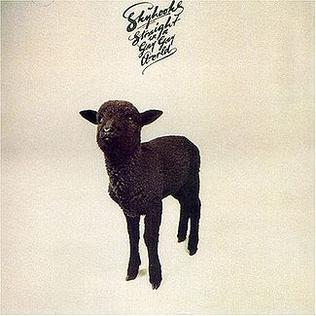
Straight in a Gay Gay World was the third studio album by Australian rock band, Skyhooks. The album was released in August 1976. With the exception of "Million Dollar Riff", it was recorded at The Record Plant in Sausalito, California, after the band's first tour of the United States earlier in the same year. The title and songs are a sort of view the band had on their experience in the States. The album was produced by former Daddy Cool leader Ross Wilson. It peaked at No. 1 on the Australian charts.

"Paloma Blanca", often called "Una Paloma Blanca", is a song written by Dutch musician George Baker and first recorded and released by his band, George Baker Selection. The single—the title track of the group's fifth album—was released in 1975 with "Dreamboat" as its B-side. The song was a hit throughout Europe, reaching No. 1 in Austria, Finland, Flanders, Germany, the Netherlands, Sweden and Switzerland, and it also topped the charts of New Zealand and South Africa.
Gregory John Macainsh is an Australian former musician and songwriter. He provided bass guitar and backing vocals for pop rockers, Skyhooks from 1973 to 1980 and subsequently for various reformations. According to Australian musicologist, Ian McFarlane, "Macainsh's biting, provocative songs were the perfect expression of adolescent obsessions and frustrations. With those songs, the band made an enormous impact on Australian social life." Macainsh became an intellectual property lawyer.
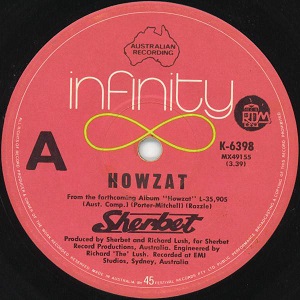
"Howzat" is a song by Australian band Sherbet, released in May 1976. The song reached number 1 in Australia on the Kent Music Report and it also reached number 1 in New Zealand on the Recorded Music NZ. It was released from Sherbet's album of the same name, Howzat. The song was written by band members Garth Porter and Tony Mitchell. The title track was also a number one hit and remains the group's biggest hit, especially outside of Australia, reaching the top 5 of the UK charts and also entering the lower end of the US Billboard Hot 100 chart.
"Ego Is Not a Dirty Word" is a song by Australian band Skyhooks, released in April 1975 as the lead single from the band's second studio album of the same name. It was written by the group's bass guitarist, Greg Macainsh and was produced by Ross Wilson. The song peaked at number two in Australia.
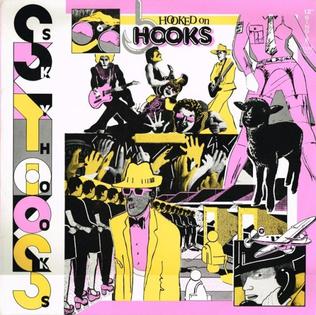
"Hooked on Hooks" is a 1982 medley produced from earlier recordings by the Australian band Skyhooks. It is a megamix of seven of their greatest hits. It peaked at number 21 in Australia. It is made up of the songs: "Horror Movie", "Ego ", "This Is My City", "Living in the 70's", "You Just Like Me 'Cos I'm Good in Bed", "Women in Uniform", and "Million Dollar Riff". It was released on 12", 7" and cassingle formats.

"Yesterday's Hero" is a pop song by John Paul Young. The song was written by George Young and Harry Vanda and was released in February 1975 as the lead single from Young's debut studio album, Hero (1975).
"All My Friends Are Getting Married" is a song by Australian band Skyhooks, released in June 1975 as the second and final single from the band's second studio album, Ego Is Not a Dirty Word. It is written by the group's bass guitarist, Greg Macainsh and was produced by Ross Wilson. The song peaked at number two in Australia.
"Blue Jeans" is a song by Australian band Skyhooks, released in August 1976 as the third and final single from the band's third studio album, Straight in a Gay Gay World. The song peaked at number 12 in Australia and at number three in New Zealand.
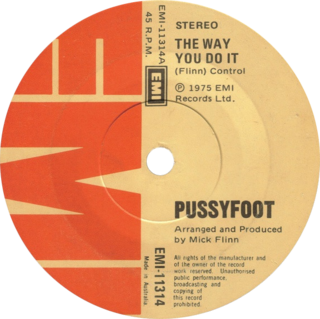
"The Way That You Do It" is a song by British recording act Pussyfoot. It was released in the United Kingdom in June 1975 as their debut single. The song's suggestive lyrics caused it to be banned by the BBC. The song was re-released under the title "Ooh Na Na Hiya" by Donna Jo, the lead singer of Pussyfoot.
References
- ↑ Conomy, Trevor (August 2015). Down Under. ISBN 9781925344332.
- ↑ "The Skyhooks Story in 9 Songs". I Like Your Old Stuff. August 2020. Retrieved 5 June 2021.
- 1 2 "National Top 100 Singles for 1975". Kent Music Report. 29 December 1975. Retrieved 15 January 2022– via Imgur.
- ↑ Kent, David (1993). Australian Chart Book 1970–1992 (illustrated ed.). St Ives, N.S.W.: Australian Chart Book. p. 277. ISBN 0-646-11917-6.
- ↑ "National Top 100 Singles for 1976". Kent Music Report. 27 December 1976. Retrieved 15 January 2022– via Imgur.